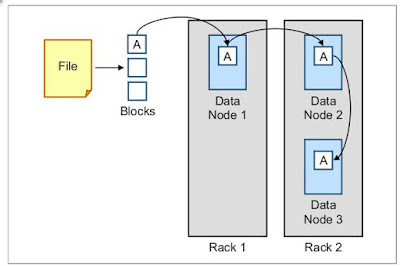Leveraging Big Data for Enhanced AI-Driven Healthcare Diagnostics
- Get link
- X
- Other Apps
Introduction
Did you know that the integration of Big Data and Artificial Intelligence (AI) is transforming healthcare diagnostics? As technology continues to evolve, the synergy between Big Data and AI offers unprecedented opportunities for improving diagnostic accuracy and patient outcomes. This guide will delve into how Big Data supports AI in healthcare diagnostics, highlighting the benefits, applications, and future prospects of this powerful combination.
Section 1: Understanding Big Data and AI in Healthcare
What is Big Data?
Big Data refers to the massive volumes of structured and unstructured data generated from various sources, including electronic health records (EHRs), medical imaging, wearable devices, and patient surveys. This data holds valuable insights into patient health, disease patterns, and treatment outcomes.
What is AI in Healthcare?
AI in healthcare involves the use of machine learning algorithms and other advanced computing techniques to analyze Big Data. AI systems can identify patterns, make predictions, and support clinical decision-making, enhancing the accuracy and efficiency of diagnostics.
Section 2: The Role of Big Data in Supporting AI
Enhanced Data Collection and Analysis
Big Data provides a vast and diverse dataset that AI algorithms can analyze to identify trends and correlations. For example, AI can process millions of medical images to detect anomalies that may indicate diseases like cancer.
Precision Medicine
AI leverages Big Data to support precision medicine, tailoring treatments to individual patients based on their genetic profiles, lifestyle, and environmental factors. This approach improves treatment efficacy and reduces adverse effects.
Early Disease Detection
Studies show that AI's ability to analyze Big Data can lead to early disease detection and prediction of health outcomes. This capability dramatically improves diagnostic accuracy and enables timely interventions.
Section 3: Practical Applications of Big Data and AI in Healthcare Diagnostics
Medical Imaging
AI algorithms can analyze medical images (such as X-rays, MRIs, and CT scans) with high precision, identifying abnormalities that may be missed by human eyes. This enhances diagnostic accuracy for conditions like tumors, fractures, and infections.
Predictive Analytics
By analyzing patient data, AI can predict the likelihood of developing certain diseases, such as diabetes or cardiovascular conditions. This allows for proactive measures and personalized treatment plans.
Clinical Decision Support Systems
AI-powered clinical decision support systems use Big Data to provide recommendations for diagnosis and treatment. These systems assist healthcare providers in making informed decisions, improving patient outcomes.
Conclusion
The integration of Big Data and AI is revolutionizing healthcare diagnostics, offering enhanced accuracy, precision, and predictive capabilities. By harnessing the power of Big Data, AI can support early disease detection, precision medicine, and improved clinical decision-making. As technology advances, the role of Big Data and AI in healthcare will continue to expand, driving better diagnostic practices and ultimately improving patient care. Embracing this technological synergy is essential for healthcare providers looking to stay at the forefront of innovation and deliver optimal care to their patients.
- Get link
- X
- Other Apps




Comments
Post a Comment